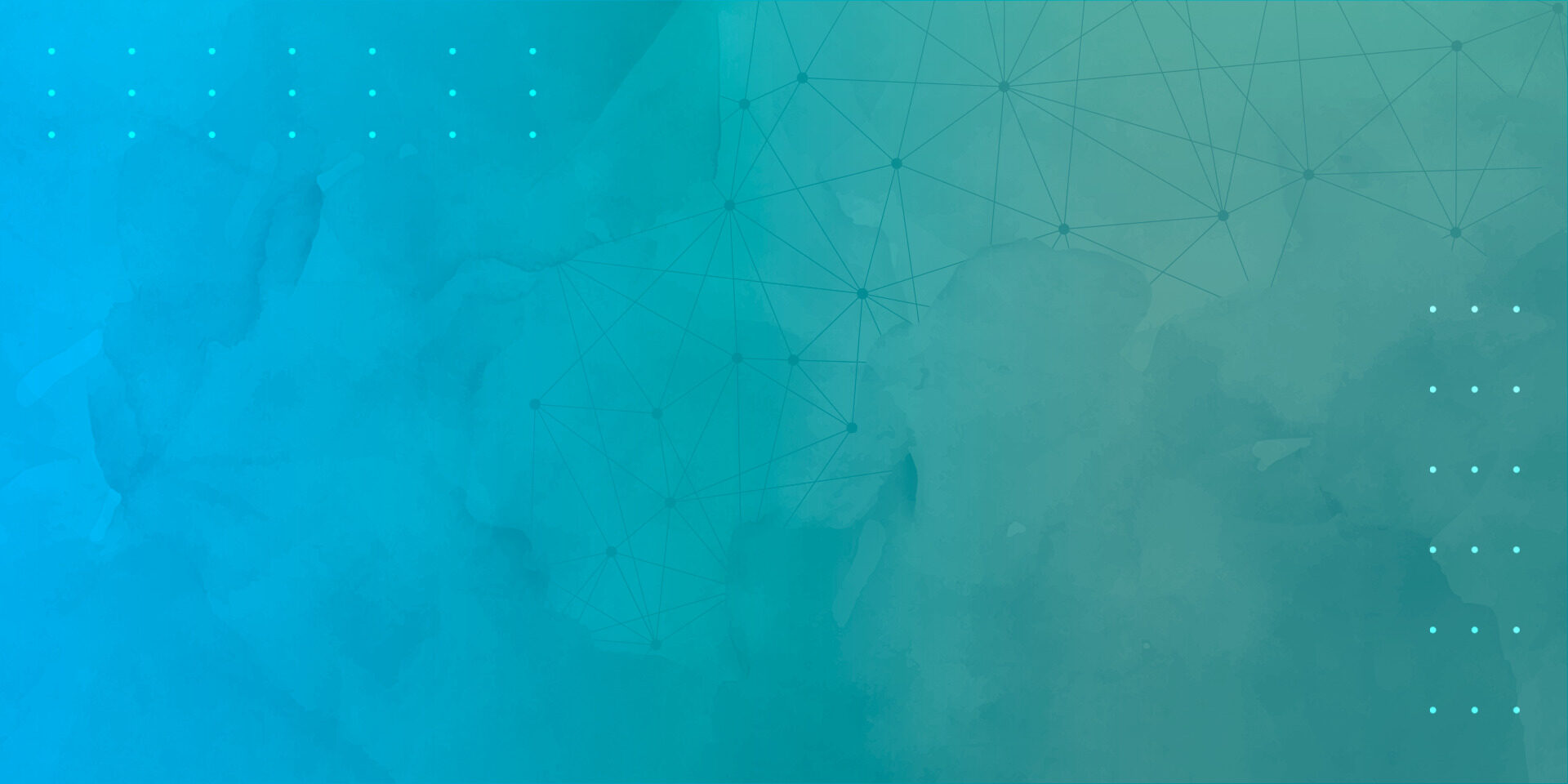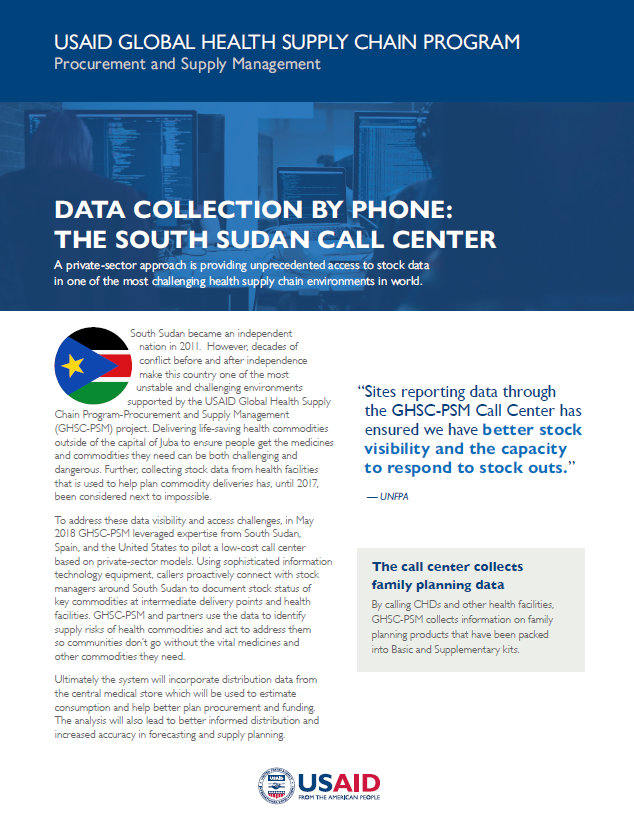To improve access to high-quality health products worldwide, the USAID Global Health Supply Chain Program-Procurement and Supply Management project employs cutting-edge technologies and industry best practices to make global health supply chains more efficient and reach more people.

Data Collection by Phone: The South Sudan Call Center .
Fact Sheet | July 1, 2020

A private-sector approach is providing unprecedented access to stock data in one of the most challenging health supply chain environments in world.
South Sudan became an independent nation in 2011. However, decades of conflict before and after independence make this country one of the most unstable and challenging environments supported by the USAID Global Health Supply Chain Program-Procurement and Supply Management (GHSC-PSM) project. Delivering life-saving health commodities outside of the capital of Juba to ensure people get the medicines and commodities they need can be both challenging and dangerous. Further, collecting stock data from health facilities that is used to help plan commodity deliveries has, until 2017, been considered next to impossible. To address these data visibility and access challenges, in May 2018 GHSC-PSM leveraged expertise from South Sudan, Spain, and the United States to pilot a low-cost call center based on private-sector models. Using sophisticated information technology equipment, callers proactively connect with stock managers around South Sudan to document stock status of key commodities at intermediate delivery points and health facilities. GHSC-PSM and partners use the data to identify supply risks of health commodities and act to address them so communities don’t go without the vital medicines and other commodities they need.
